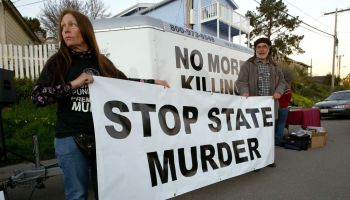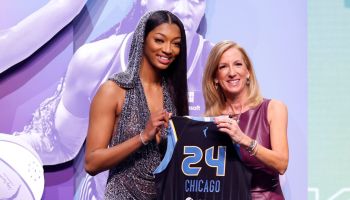Much has been made of the fact that black people are more likely to access the Internet on mobile devices and to use Twitter than other groups in the U.S., but overall, Blacks continue to lag behind Whites in Internet use. Eighty percent of African Americans are Internet users, trailing White Americans by seven percentage points, according to a 2014 Pew Research Study.
As a result, some civil rights leaders hope to see an expansion of President Barack Obama’s “net neutrality” proposal for “a free and open Internet” to include government subsidies for families who cannot afford to pay for Internet services at home, Brent Wilkes, National Executive Director for the League of United Latin American Citizens, told NewsOne. He said a measure to address low-income subsidies was introduced last year, but stalled in the Senate. With the new Republican-dominated Congress, he said, it’s unclear whether the issue will be taken up again. However, that will not stop him and other civil rights leaders from renewing the fight, he said.
The battle is important: African Americans trail Whites by 12 percentage points when it comes to home broadband adoption, Wilkes said, citing the Pew study. “Broadband use at home is game changing and has an impact on employment opportunities,” Wilkes said. “For those who do not have home access, it creates barriers. Sure, you could use your phone to surf the Internet at home, but you cannot use your cellphone when you’re thinking about getting prepared for college, doing homework, or applying for a job. For those things, you are not going to be using your smartphone. You need a computer.”
Older African Americans, as well as those who have not attended college, are less likely to go online or to have broadband service at home compared to Whites with a similar demographic profile, the Pew report says. Just 45 percent of Black seniors use the Internet, and 30 percent have broadband at home. Among White seniors, 63 percent go online and 51 percent use broadband.
The gap narrows for some subgroups of the Black community, according to Pew:
On the other hand, young, college-educated, and higher-income African Americans are just as likely as their White counterparts to use the internet and to have broadband service at home. Some 86 percent of African Americans ages 18-29 are home broadband adopters, as are 88 percent of black college graduates and 91 percent of African Americans with an annual household income of $75,000 or more per year. These figures are all well above the national average for broadband adoption, and are identical to whites of similar ages, incomes, and education levels.
Wilkes believes those statistics shouldn’t make us complacent, and that it’s important for civil rights leaders and others to continue to fight for federal subsidies for home broadband adoption.
“Yes, people of color have access to Twitter, Facebook, ringtones and all of that, but I don’t consider that as essential to business and education as [having] a desktop, where you can write your resume and research a term paper,” he said. “We won’t just give up.”
RELATED STORIES:
The Civil Rights Movement Knocks on the Door of the FCC [Opinion]
The Upcoming Vote That May Change Your (Internet) Life
Why The Net Neutrality Debate Is Important To People Of Color
















